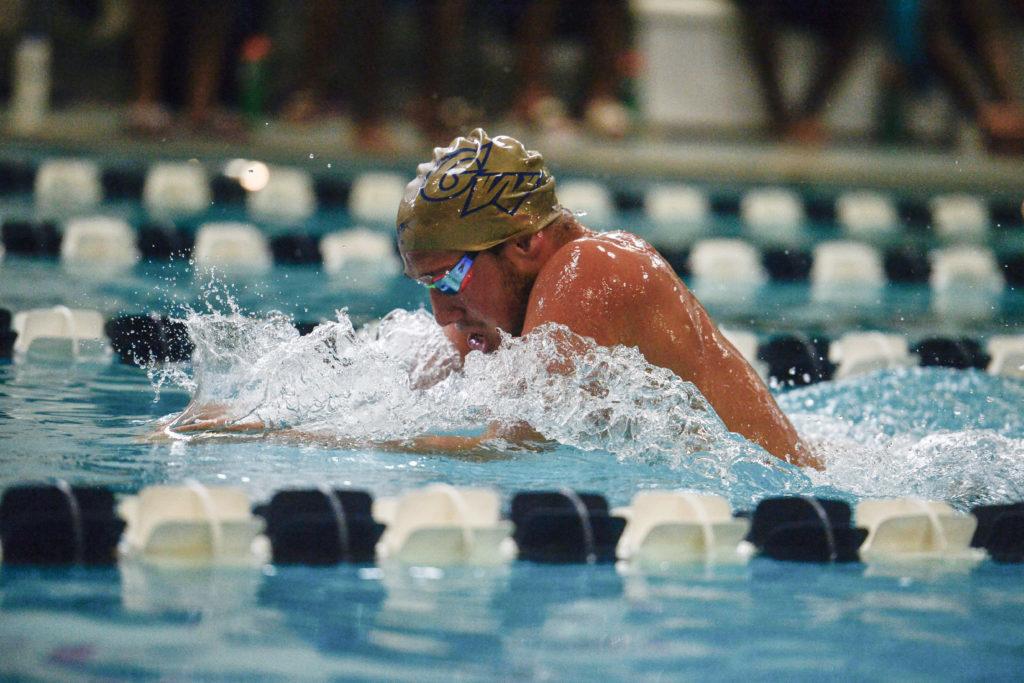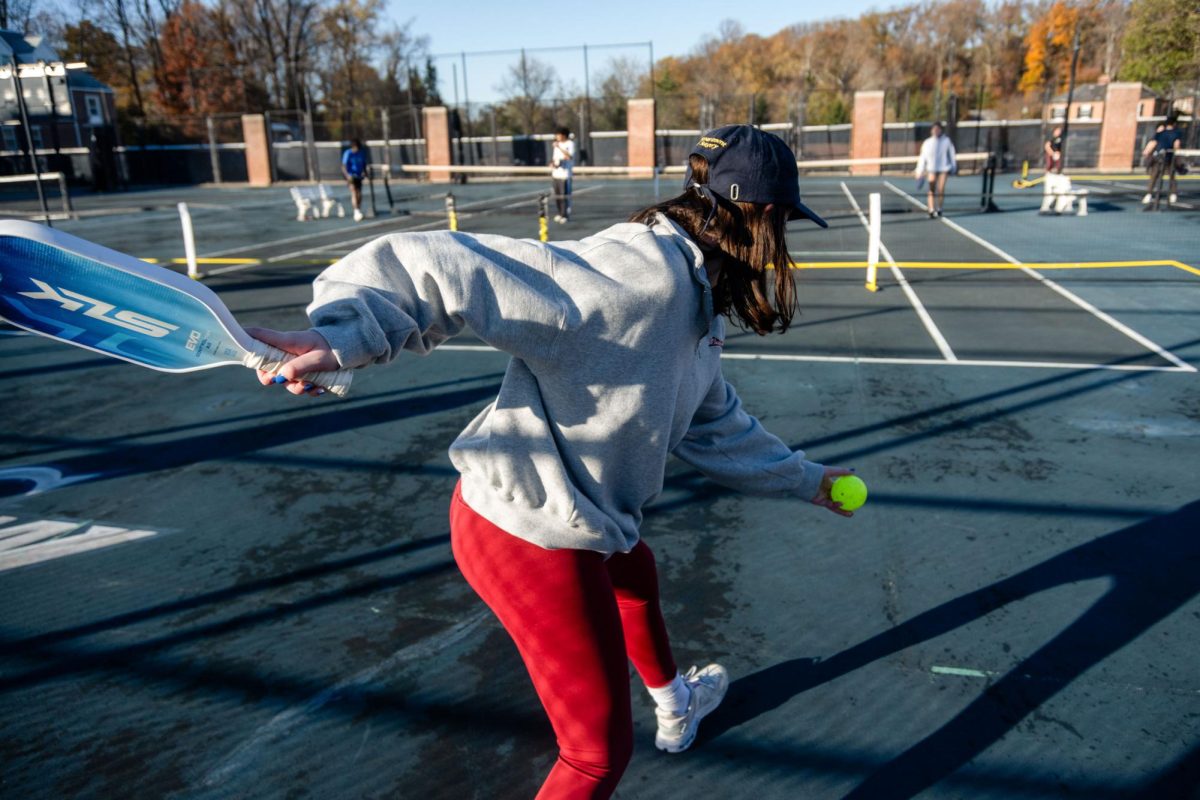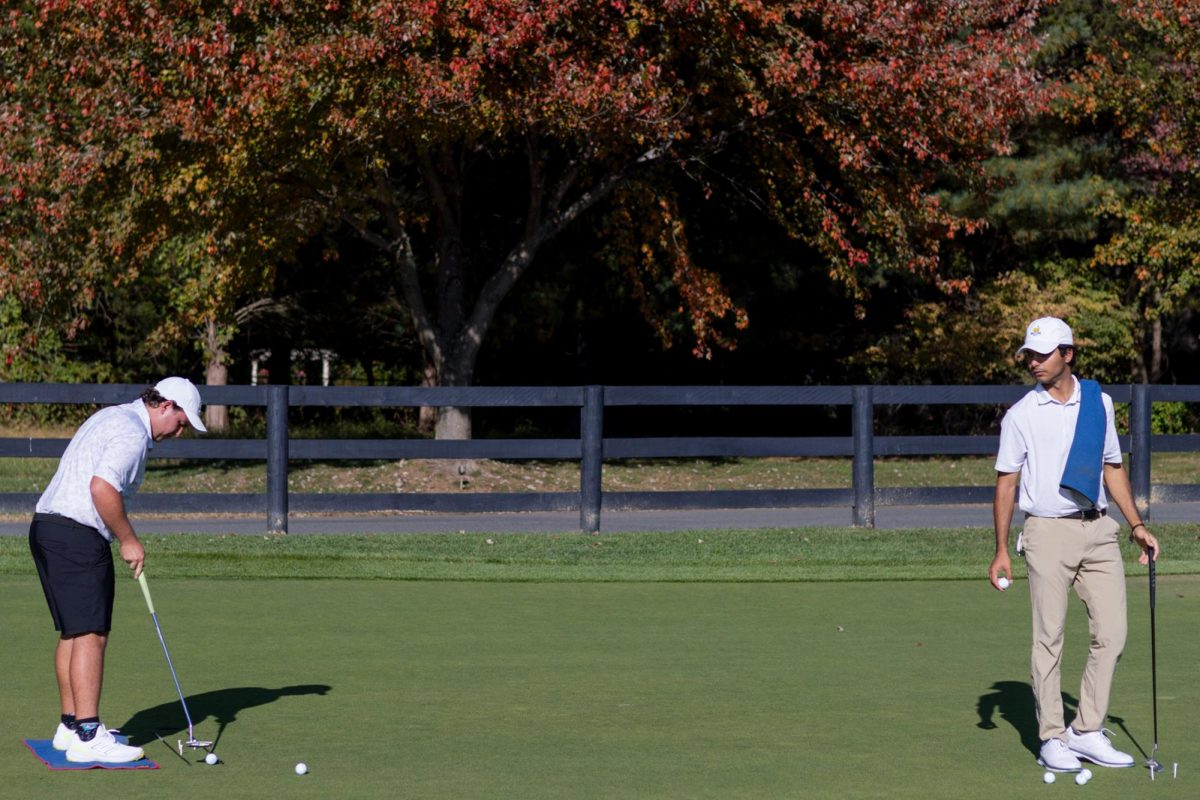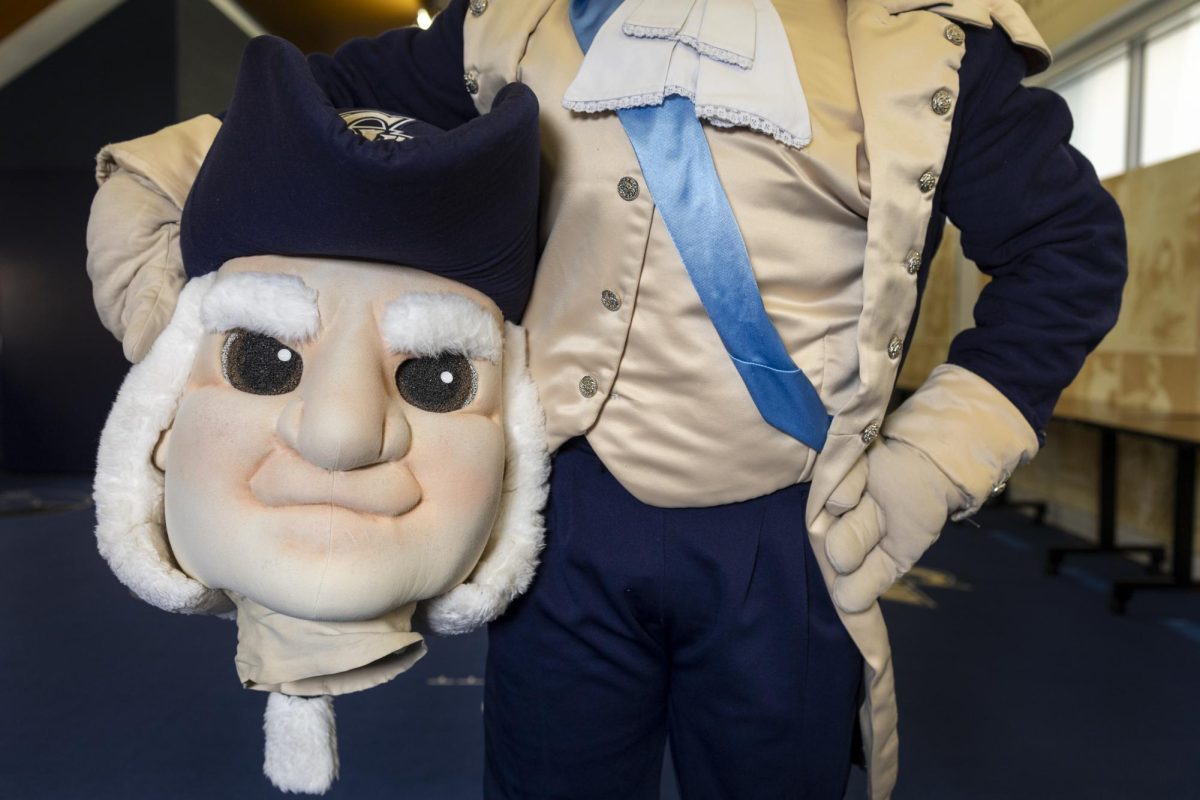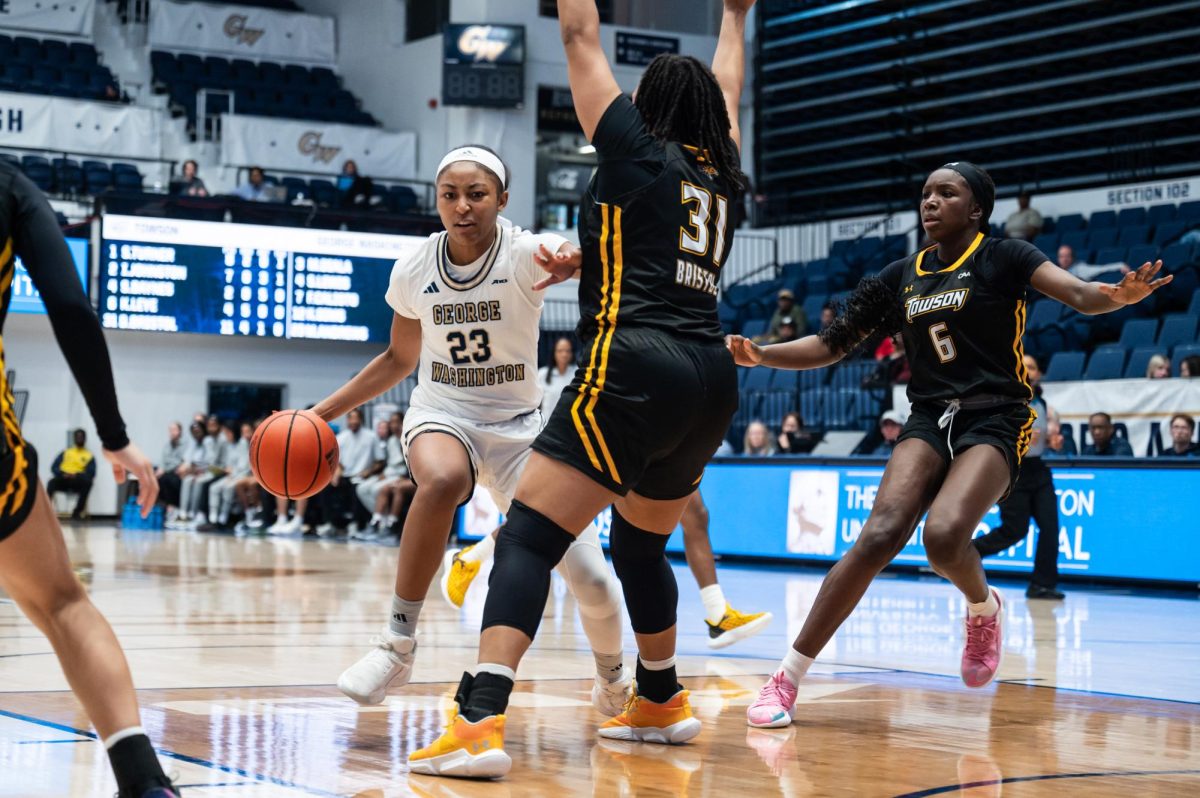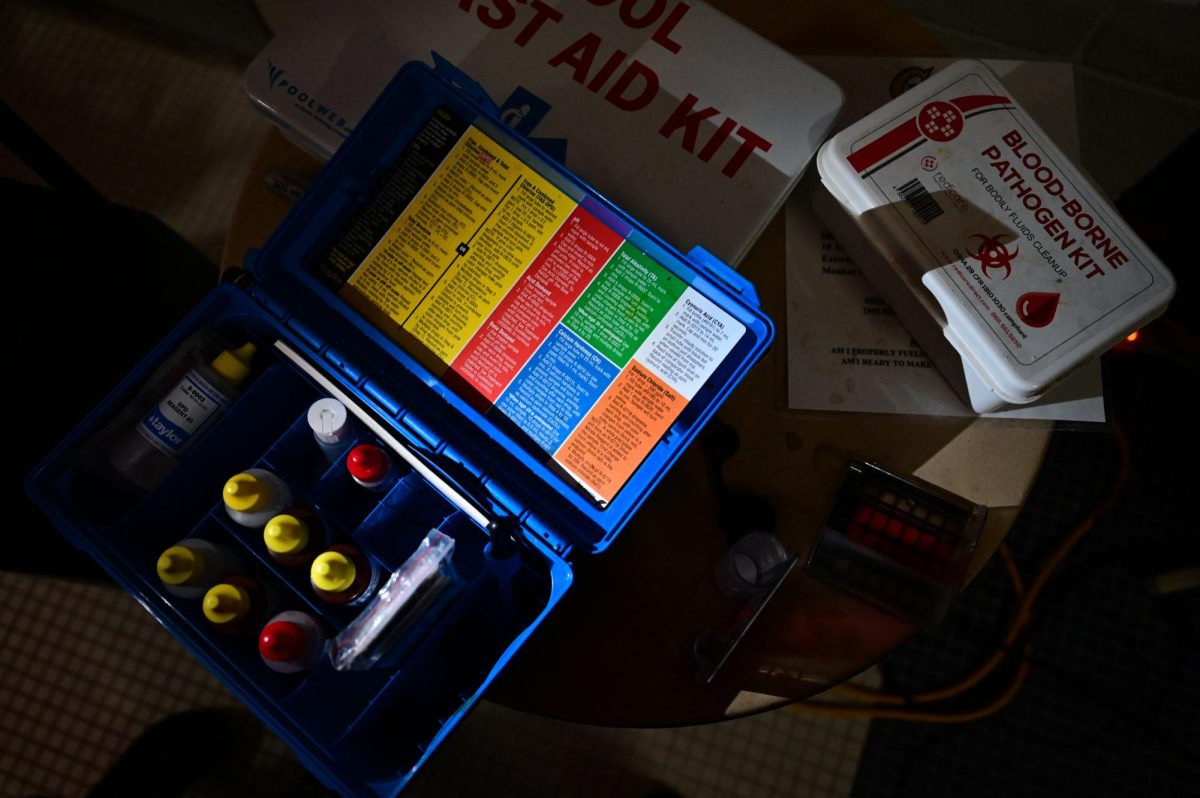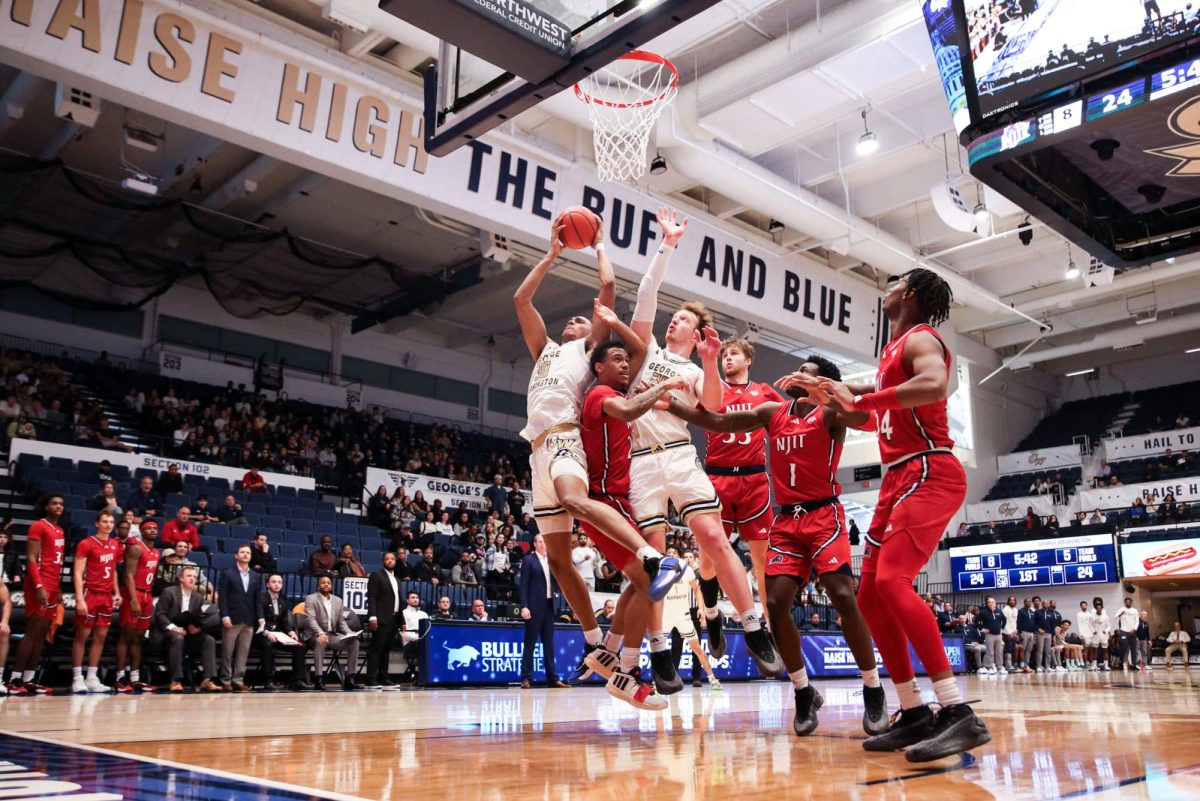After almost a year outside competitive lanes, the men’s and women’s swimming and diving programs kicked off a shortened 2020-21 season last week.
Both teams opened the season at the three-day Cavalier Invitational against Virginia and Pittsburgh – their first of just three scheduled regular season meets. Swimmers said the return to competition helped them get into a routine and provided them with fresh faces to race against after months of challenging teammates.
“It was a great practice, if nothing else, to get back into the routine of racing and doing the team warmups together, team cheers, that sort of thing,” junior Dylan Arzoni said. “It was just a great thing for the teams to be able to get down there and do some racing and also get back into the routine of what we do when we travel.”
A normal swimming and diving season at GW begins in October and extends through the first weeks of March. But this year, because of COVID-19, student-athletes waited until Feb. 5 to compete again after returning to practice in August.
Graduate student Emils Pone, who chose not to take part in NCAA competition last season to focus on training for the upcoming 2021 Olympics, said he felt “rusty” in his first competition back.
“I haven’t been in college competition for a very long time, so it was kind of crazy and we’ve had to manage the stressfulness of the racing, but at the same time the excitement of just being there and racing with your teammates again,” he said.
He added that he tested a new race strategy, attempting to start the race off strong rather than finishing the race strong and playing “catch up.” But Pone had no trouble seeing results in the pool, finishing second in the 400 yard IM with a time of 3:56.04.
Freshman Karol Mlynarczyk struck gold in his first collegiate meet. He nabbed a top-25 time in the 100 yard backstroke preliminaries (46.97) before pacing the competition in the finals with a time of 47.29. He also topped the leaderboard in the 200 yard backstroke, posting a 1:43.94. Both times rank No. 2 in program history.
Head coach Brian Thomas said Mlynarczyk is poised to be “one of the best athletes in the Atlantic 10” but is still working through his first year on the college scene.
“He does all the things that first-years typically do – good and bad,” Thomas said. “We’re kind of treating it that way I guess and being patient and making sure that he’s not skipping any steps in terms of his improvement.”
In an October interview, Thomas said 30 of the 52 rostered student-athletes from both programs were on campus in the fall for training. The other 22 swimmers and divers were practicing with hometown teams and continuing to train, he added.
Junior Grace Olivardia said she was antsy to get back in a competitive environment after months of practicing. She said 11 months of training took some pressure off her first meet back, but continuing to train without competing became “annoying” as time wore on.
“At five months it was nice, and it was good to train because you could really focus on getting better,” Olivardia said. “But eventually you want to get back into racing, and we did our own meets with ourselves, but it was nice to go to a different pool. We all said that even if we were just racing each other, it was nice to be somewhere else.”
Junior Courtney Sicinski said she and her teammates have spent time racing each other and weight training to prepare for the season. She added that she leaned on her experience and training to erase any nerves she may have had coming into her races last week.
“It was just a little nerve wracking to start at the beginning,” she said. “But once you dive in and hit the water and you’re just swimming, it all comes back to you because you’ve been doing it for years now. And we’ve been training this every single day, so once you just get into it, it gets much easier.”
Sicinski beat out sophomore Alex Marlow for the No. 1 spot in the 200 yard IM, nabbing a 2:08.95, and posting a 4:34.71 in the 400 yard IM. Olivardia nabbed a third place finish and the highest spot of any Colonial in the 200 yard freestyle, improving her preliminary time by two seconds.
An abundance of caution due to COVID-19 concerns in GW’s programs canceled the teams’ first dual meet of the year Feb. 13, leaving both programs with just one meet left before the NCAA Championships March 8 to 10 and 24 to 27. Thomas said he has spoken with coaches as recently as Wednesday about getting more meets on the calendar in mid-March.
He added that the squads’ main opportunity to qualify for the NCAA Championships will be at the Navy Invitational March 5 and 6 – exactly one month after the season started. The Atlantic 10 Championship for both programs, which is traditionally before the NCAA Championship, will now take place April 14 to 17.
Thomas said with a shortened year and inverted schedule, his teams need to harness each competitive opportunity and use it to the best of their abilities to get better because practice can’t simulate the real race environments athletes will face in March.
“What we’re doing to manage such a strange year is making sure we’re taking advantage of every opportunity we have to get better because they’re sometimes few and far between,” he said. “It had been 11 months since we competed together, so it’s really taking some of those things we can learn and just the benefit of getting races on video.”
The Colonials are scheduled to return March 5 at the Navy Invitational. Competition starts at 11 a.m.
Belle Long contributed reporting.


